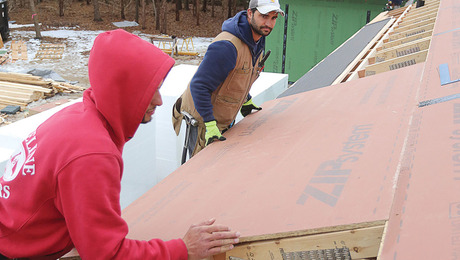I found the following infor online and would like to double check it with the experts here at Breaktime.
“When repointing the exterior face of an old-house foundation, mortar needs to be softer than the surrounding stones or bricks. For this reason, you should usually avoid pre-packaged mortar mixes — which contain a heavy dose of “hard” Portland cement — for exterior old-house work.
Inside, it’s a different story: Pre-packaged mortar mix can be used for the repointing and also the recoating. Simply follow the mixing instructions on the bag of mortar, troweling the mix between the stones and finishing with a complete coating.”
My situation is repointing the interior basement walls but this is the first time I heard you could use the pre-packaged mortar mixes rather than approximating the the sand and lime mixure of the original mortar followed by a fresh sparge coat on top. Is this adive correct? Thanks for any help you can offer.















Replies
Greetings W,
This post, in response to your question, will bump the thread through the 'recent discussion' listing again which will increase it's viewing.
Perhaps it will catch someone's attention that can help you with advice.
Cheers
"being human is a complicated proposition"-DavidxDoud
---Never show a fool a half finished job---Grampsy
I feel like a bunny in a hillbilly meadow at noon..........jjwalters
When repointing a basement, I think that the main concerns would be matching aesthetically. Without the expansion/contraction and freeze/thaw cycles that exterior stonework gets, a hard mortar won't crack the stones. However, it would be my preference to use a mortar for pointing that is similar to the setting mortar.
Mortar made with just p-cement is more difficult to clean anyway, I'd use something closer to 1:2 lime to cement. Dye to match any exposed old mortar, and try to match sand color.
zak
"When we build, let us think that we build forever. Let it not be for present delight nor for present use alone." --John Ruskin
"so it goes"